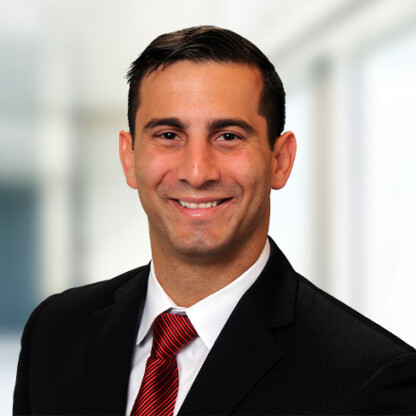Lacktman, Ferrante Featured in mHealthIntelligence about Telestroke Services
February 14, 2018
mHealthIntelligence
Partner Nate Lacktman and Senior Counsel Thomas Ferrante were quoted in an mHealthIntelligence article, “FDA OKs mHealth App That Uses AI to Spot Strokes, Alert Specialists,” about what the Bipartisan Budget Act of 2018’s elimination of originating-site restrictions for telestroke services will mean for health care systems and institutions with established stroke programs.
The FDA recently approved an mHealth application, Viz.AI, which uses artificial intelligence software to analyze CT scans for signs of a stroke, then sends a message to a neurologist. It contains specially-designed mobile units that can start treatment when transmitted to the patient’s location, and telestroke platforms that allow health care providers to reach neurologists who are based anywhere.
In conjunction with this news, mHealthIntelligence featured Lacktman and Ferrante’s comments from the telestroke section of their recent Health Care Law Today blog post, which analyzes the new federal funding bill: “Allowing more qualified originating sites, such as the patient’s home, ambulances and mobile stroke units, will provide broader options for health care systems that do not have constant access to a neurologist and allow institutions with established stroke programs opportunities for destination medicine and new patients.”
The FDA recently approved an mHealth application, Viz.AI, which uses artificial intelligence software to analyze CT scans for signs of a stroke, then sends a message to a neurologist. It contains specially-designed mobile units that can start treatment when transmitted to the patient’s location, and telestroke platforms that allow health care providers to reach neurologists who are based anywhere.
In conjunction with this news, mHealthIntelligence featured Lacktman and Ferrante’s comments from the telestroke section of their recent Health Care Law Today blog post, which analyzes the new federal funding bill: “Allowing more qualified originating sites, such as the patient’s home, ambulances and mobile stroke units, will provide broader options for health care systems that do not have constant access to a neurologist and allow institutions with established stroke programs opportunities for destination medicine and new patients.”
Related News
August 5, 2025
In the News
Aaron Maguregui on Health Data Sharing Plan – 'I would expect the FTC to be heavily involved'
Foley & Lardner LLP partner Aaron Maguregui addressed a new health care data sharing initiative announced by the federal government in the Bloomberg Law article, "Digital Data-Sharing Plan Tests Limits of Health Privacy Rules."
August 1, 2025
In the News
Aaron Maguregui Assesses HIPAA Challenges as AI Advances in Health Care
Foley & Lardner LLP partner Aaron Maguregui commented in the Medical Device Network article, "AI proliferation in healthcare shines light on HIPAA shortcomings," assessing the rise and accompanying risks of artificial intelligence in health care.
August 1, 2025
In the News
Louis Lehot Assesses Figma IPO
Foley & Lardner LLP partner Louis Lehot commented on a major technology initial public offering in the Business Insider article, "Lina Kahn is taking a victory lap over the Figma IPO."

